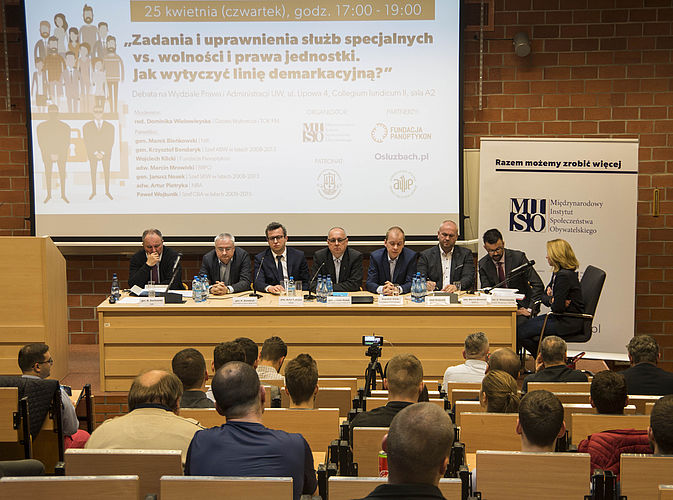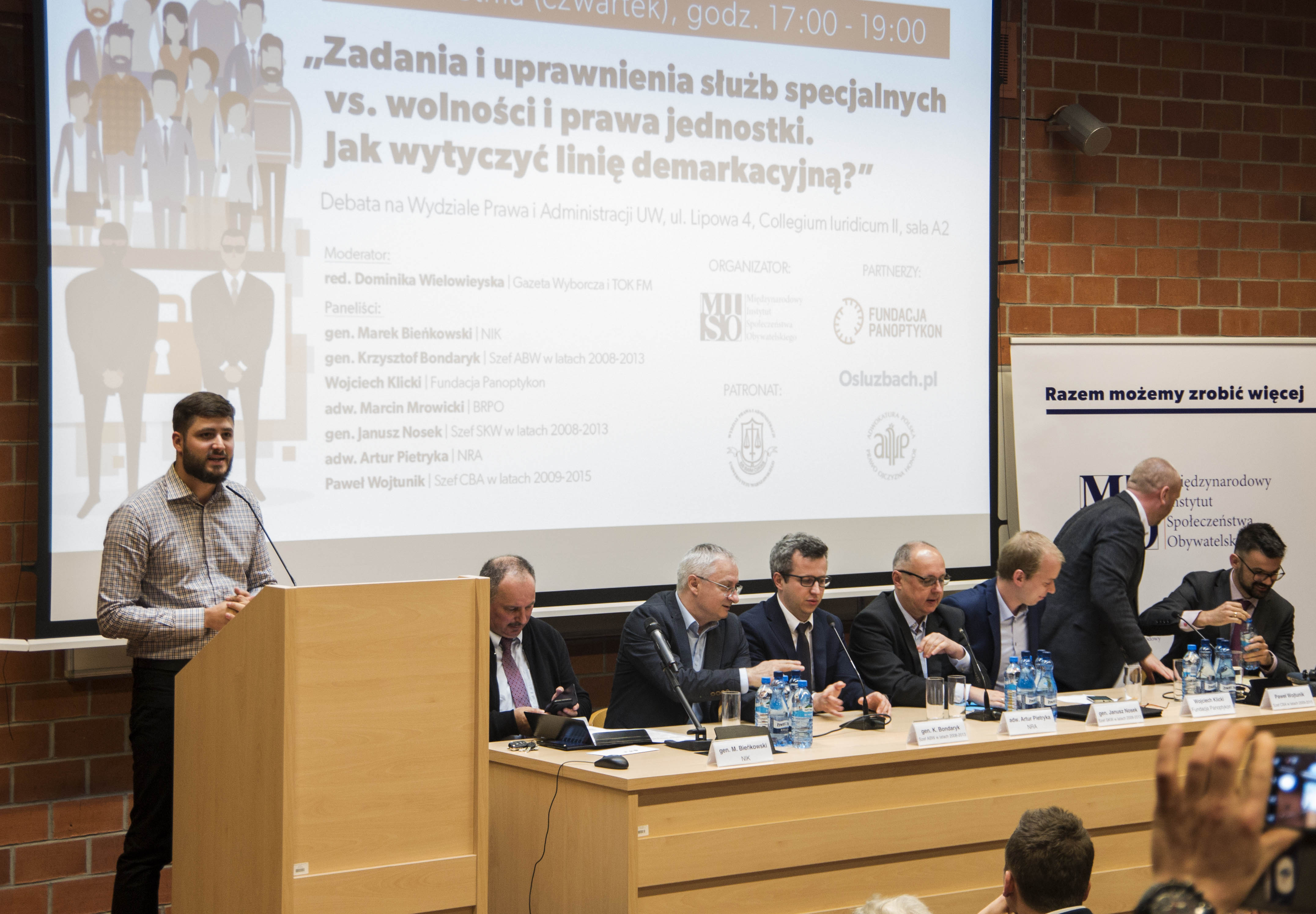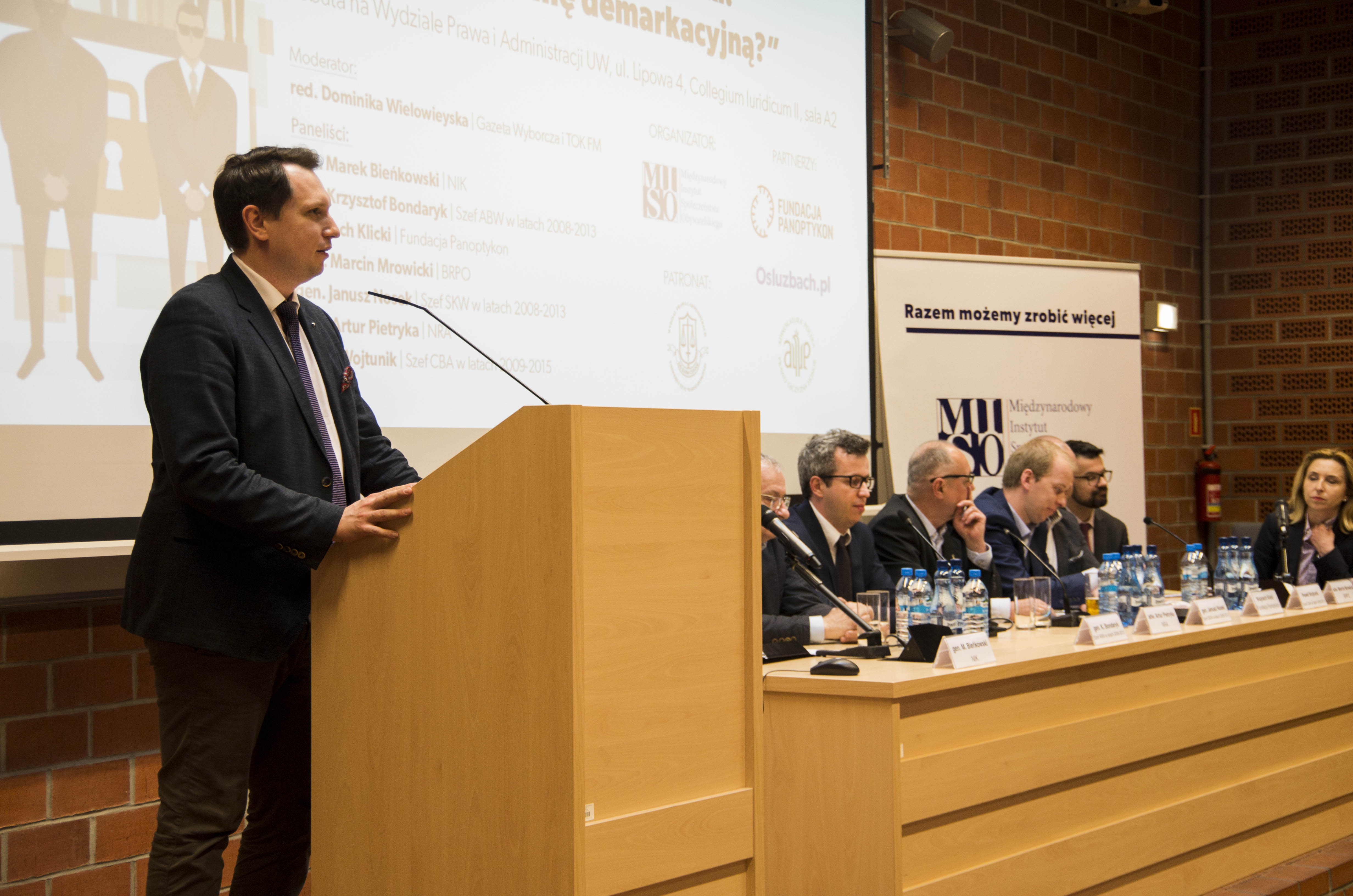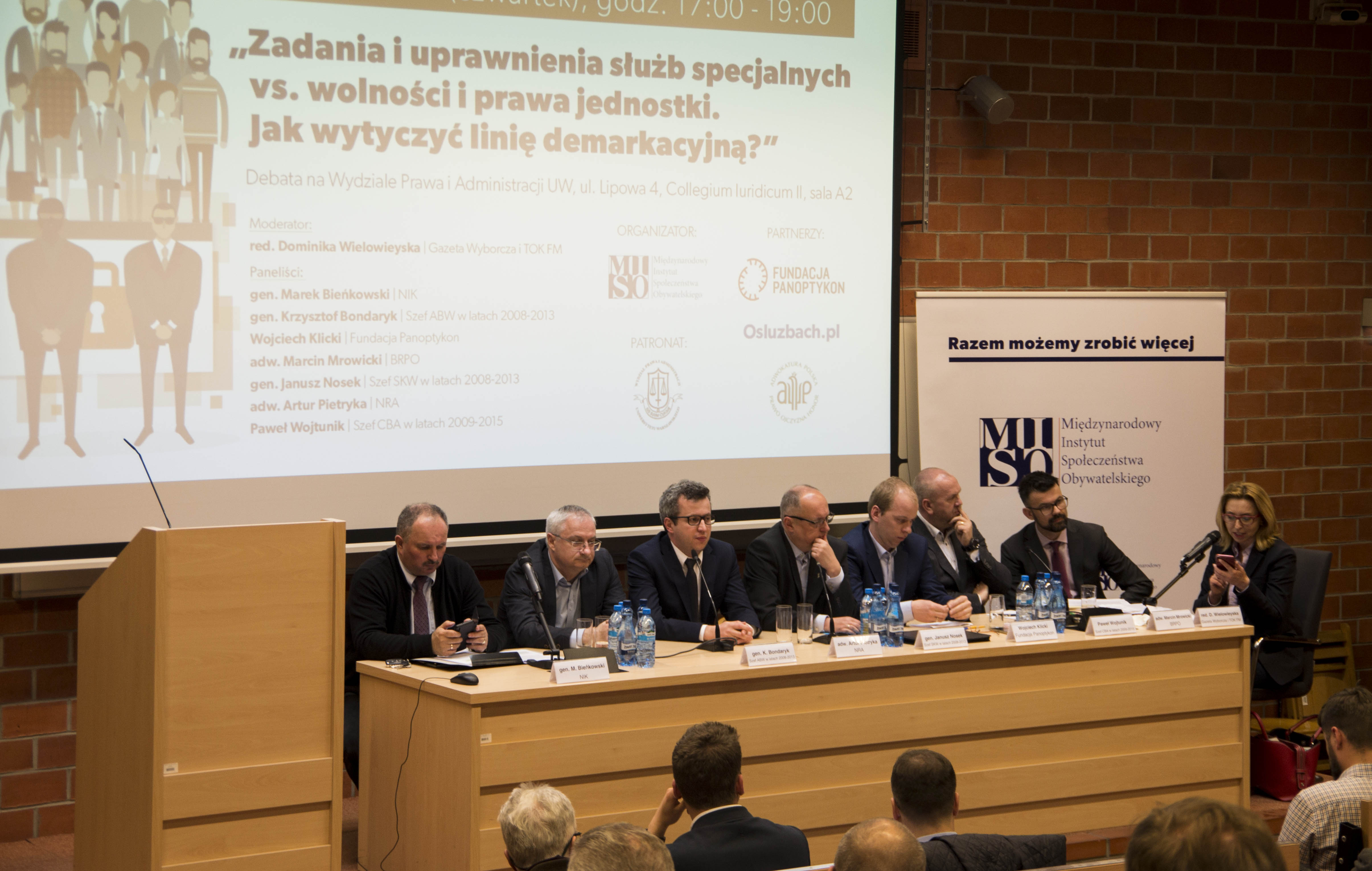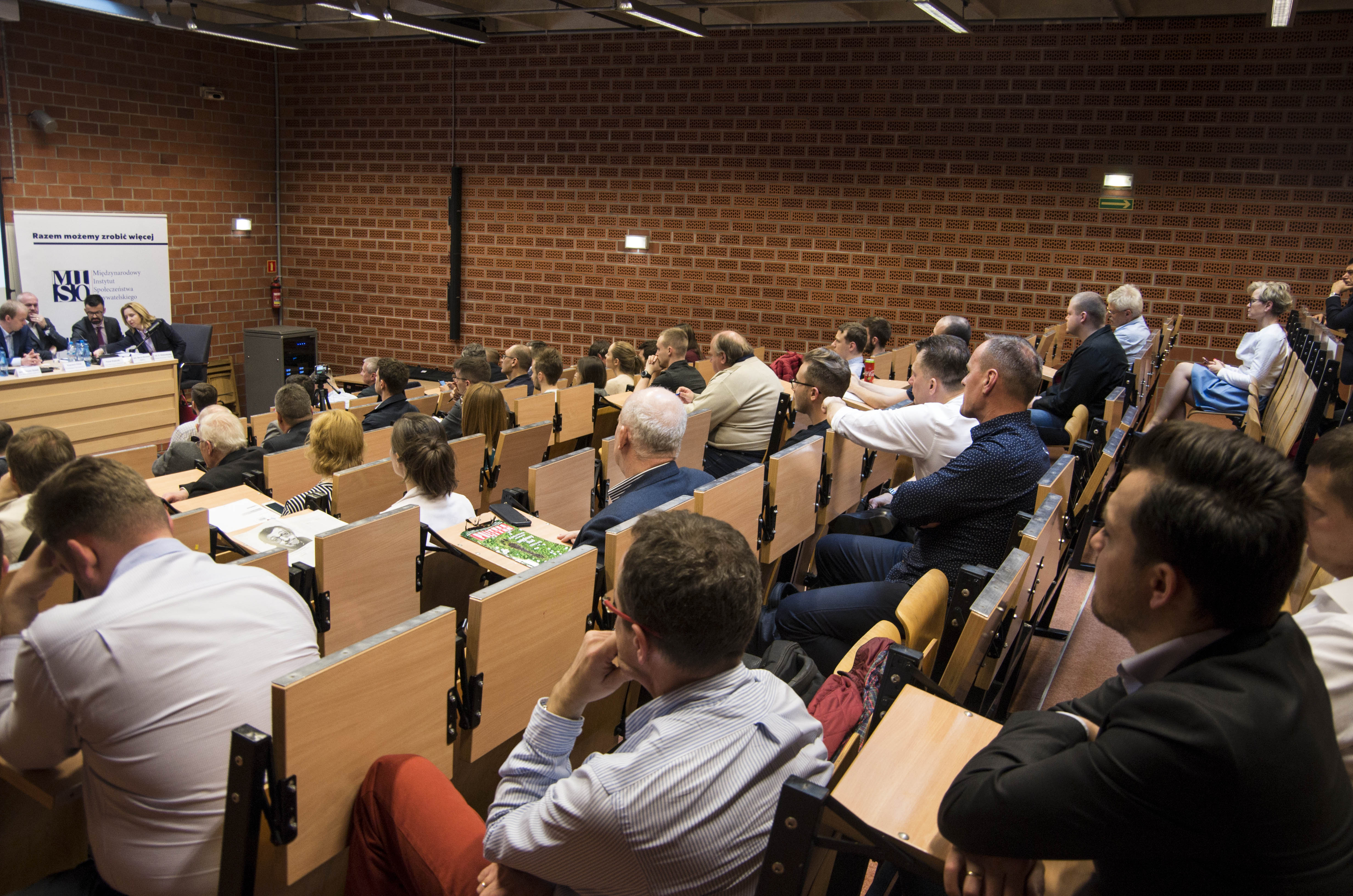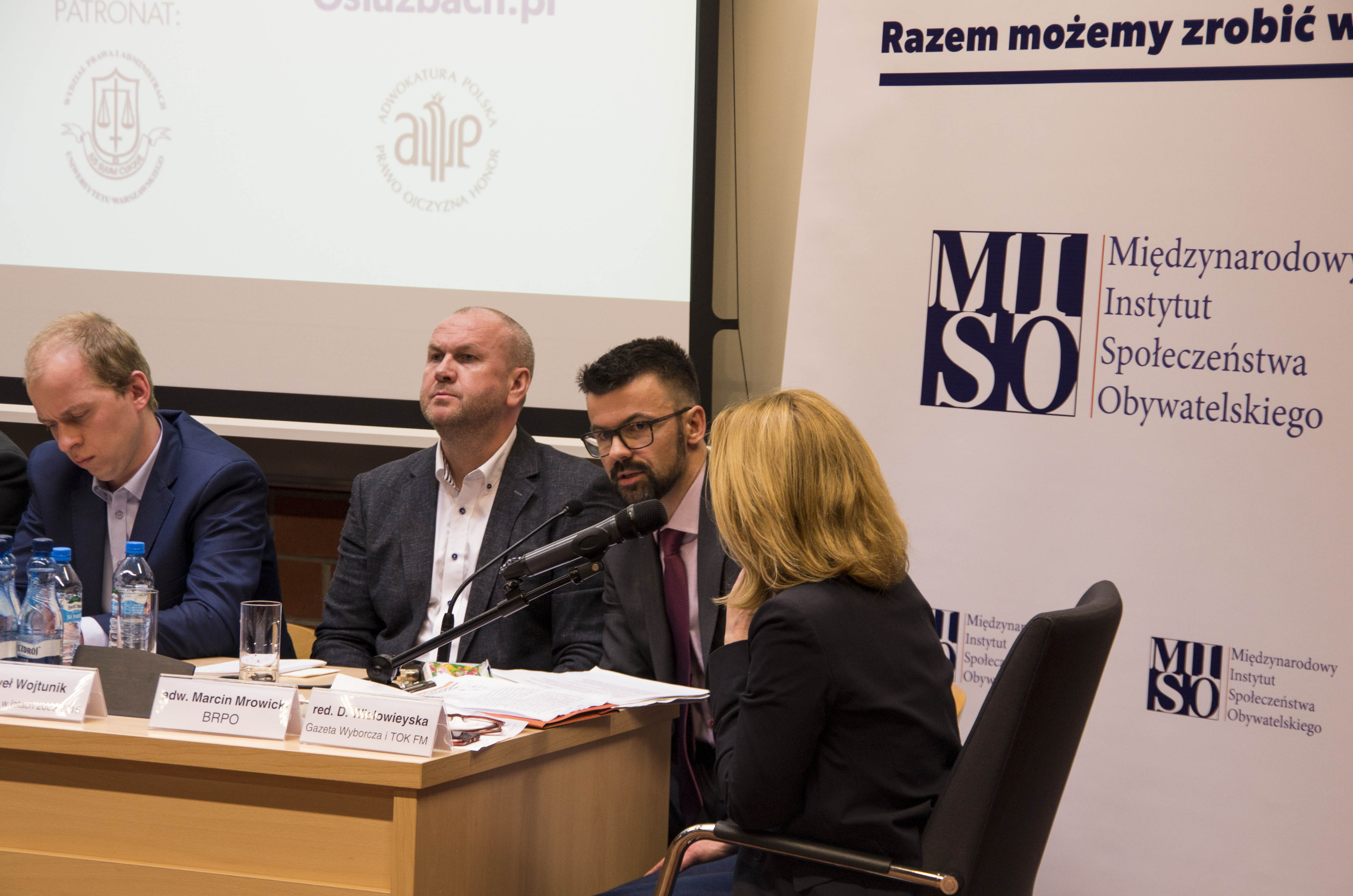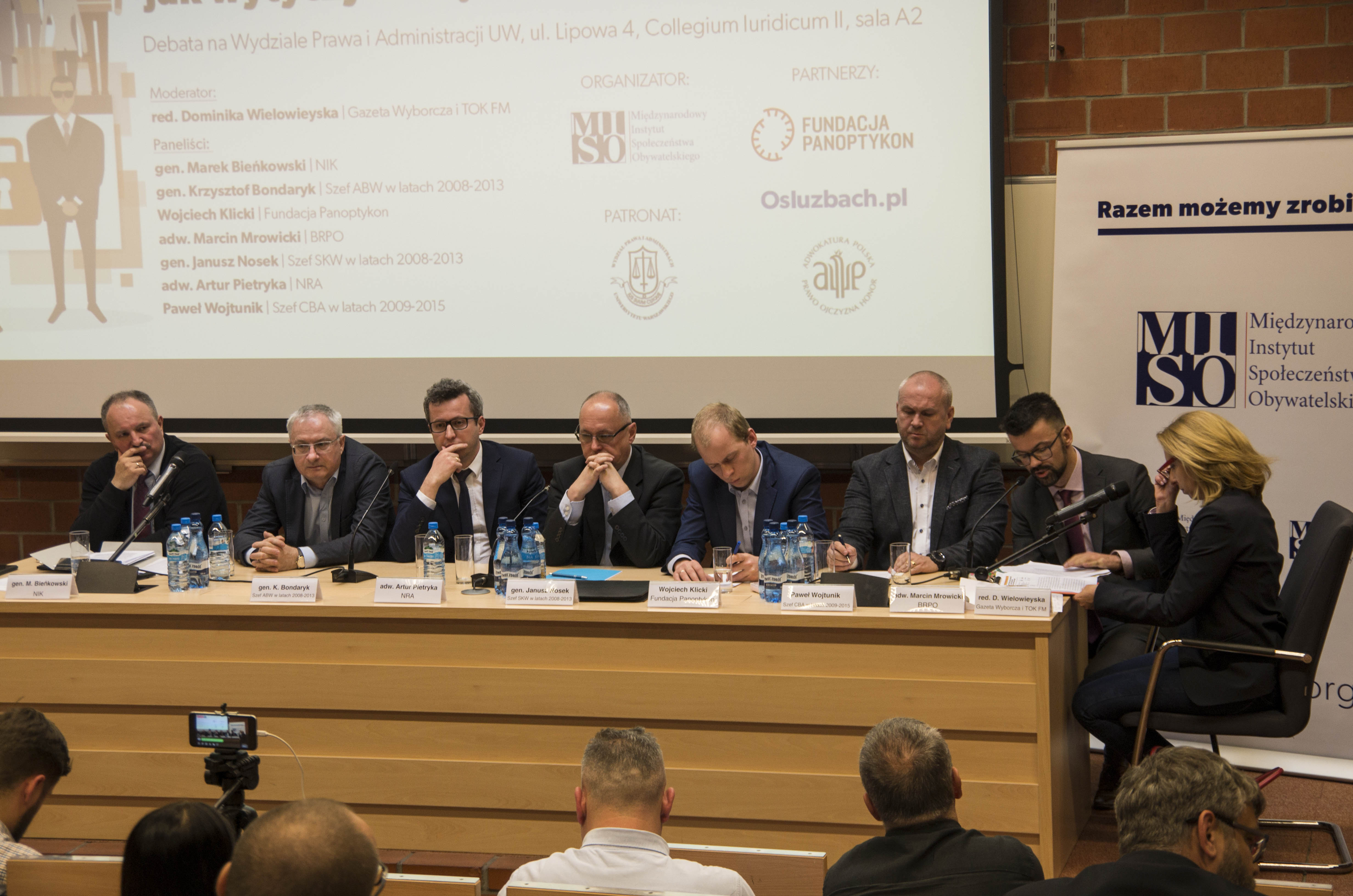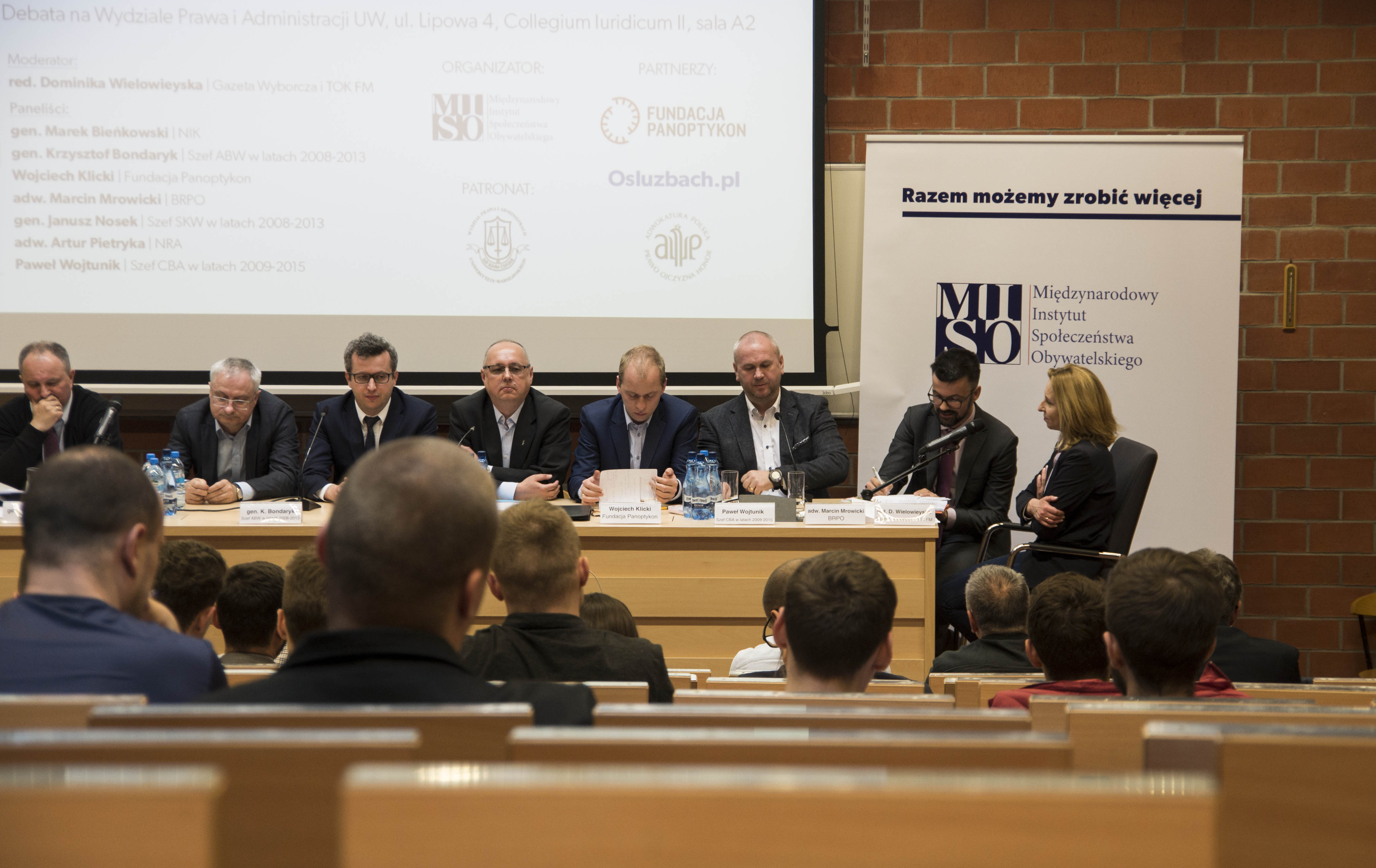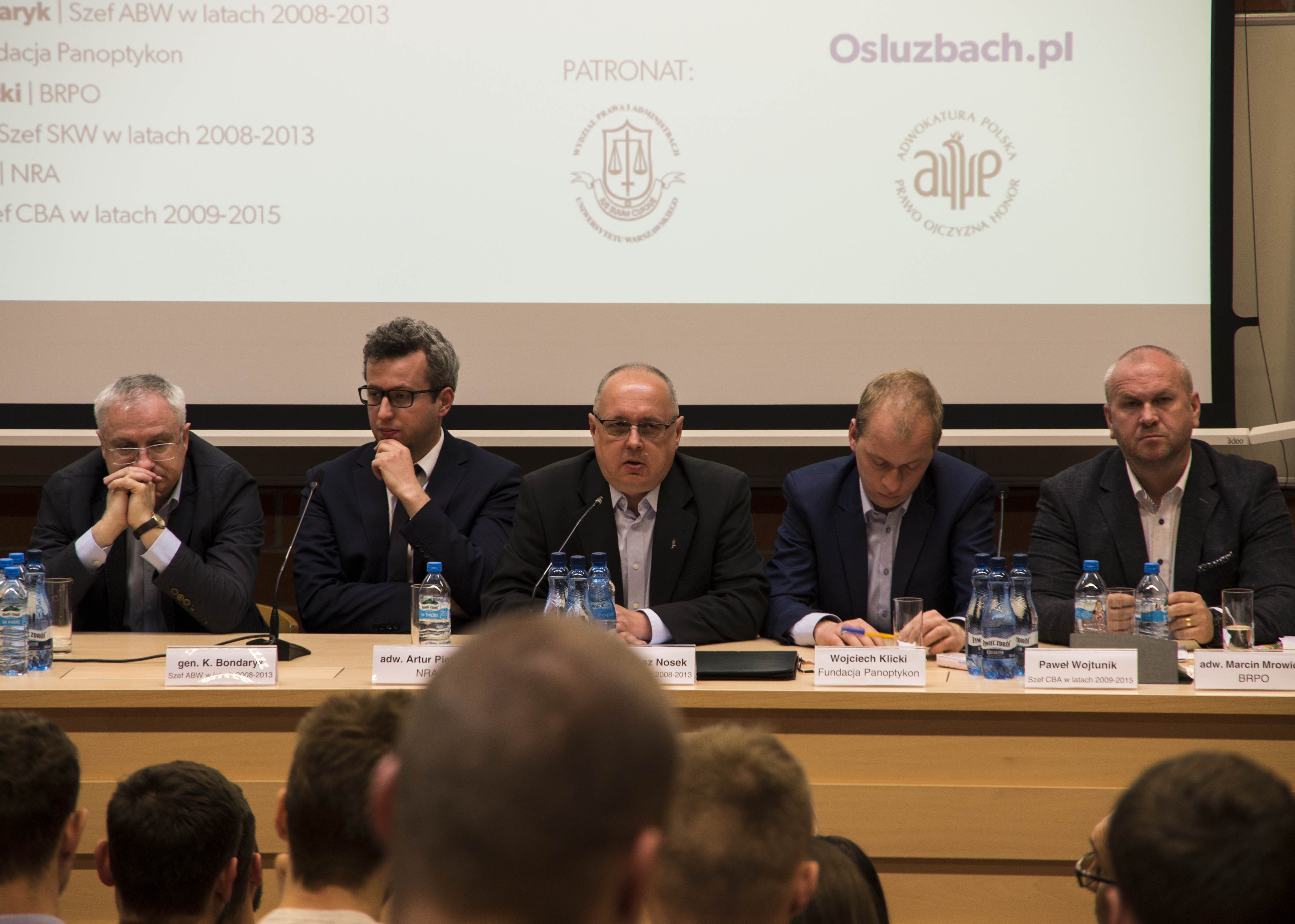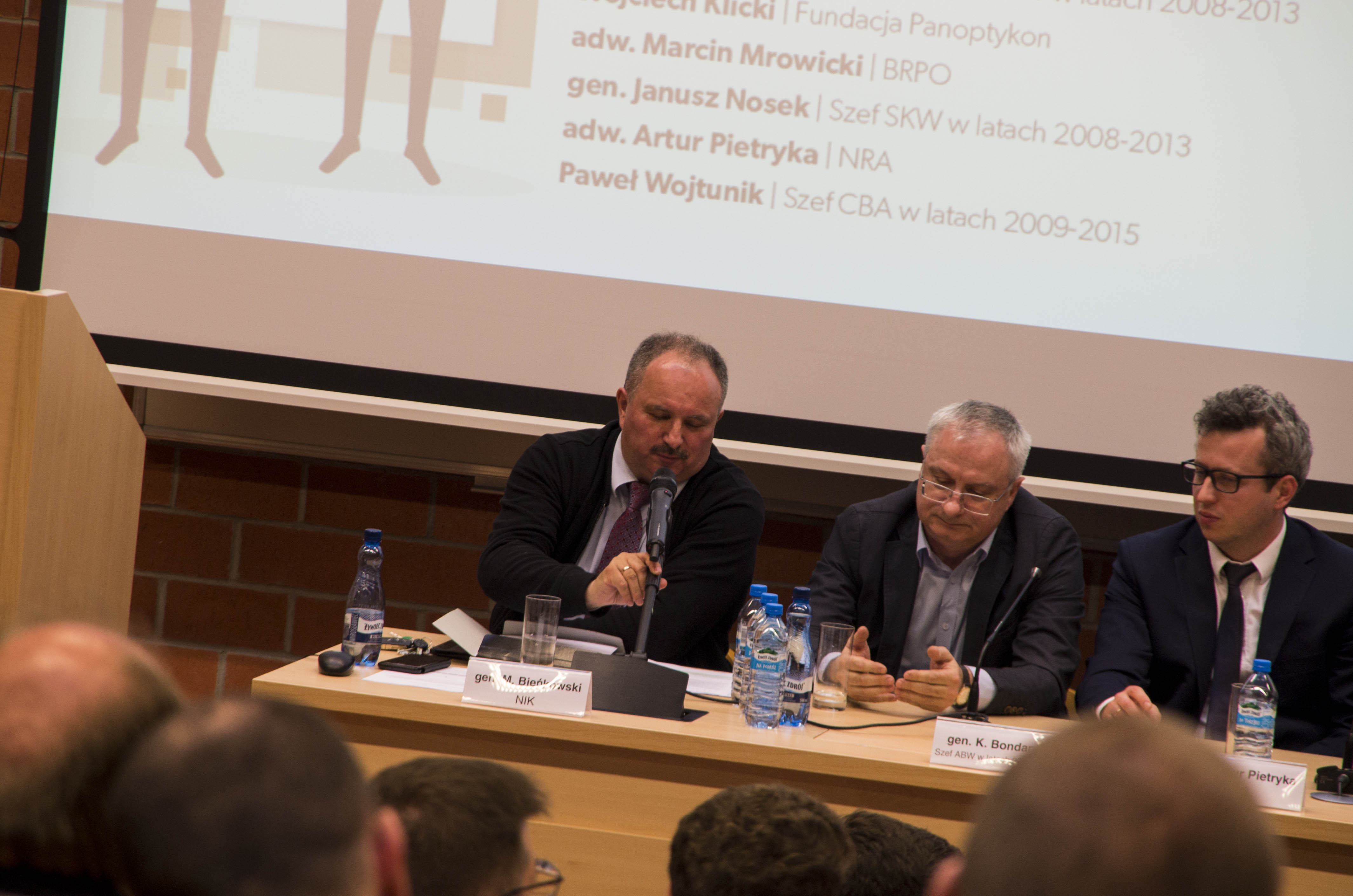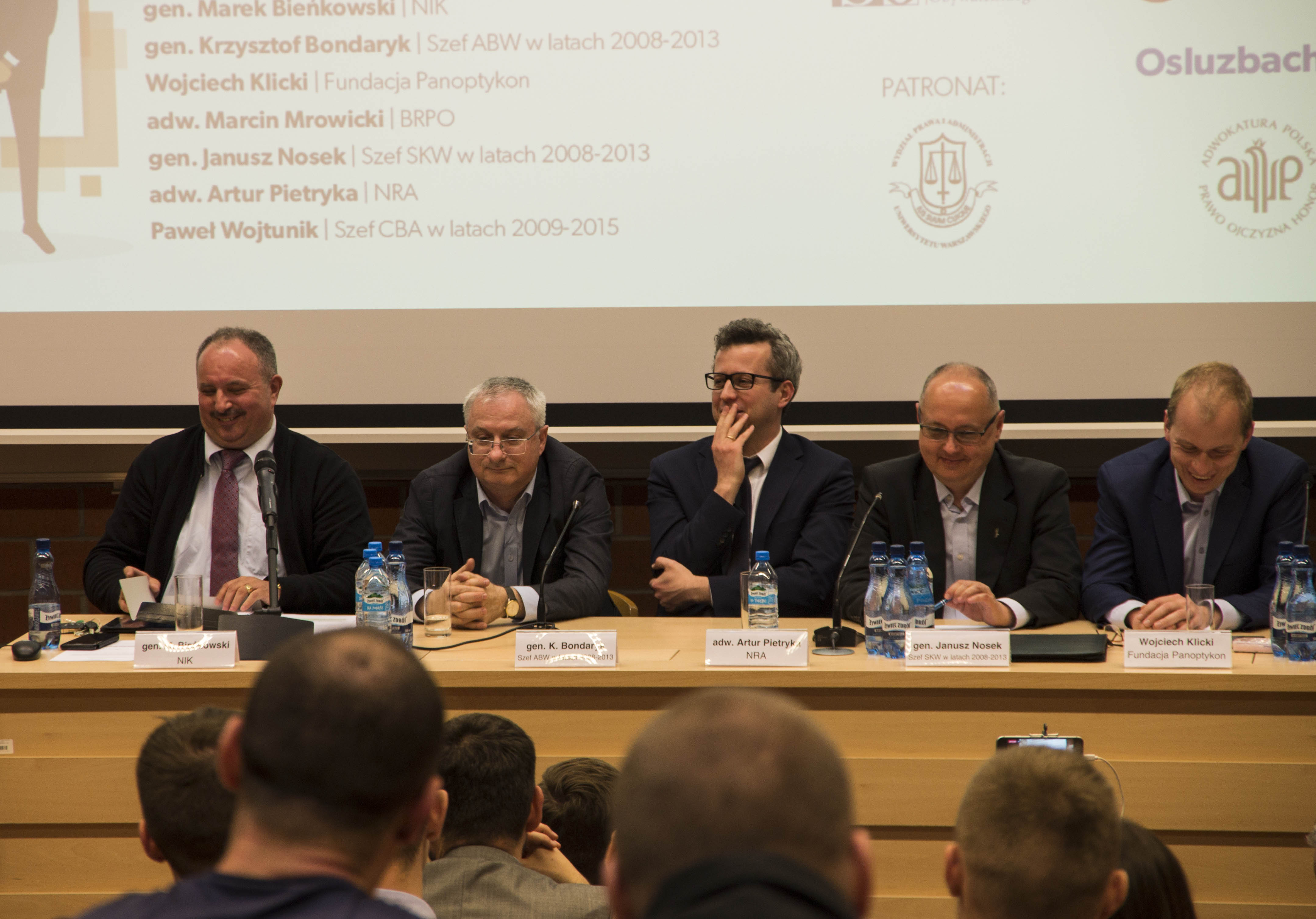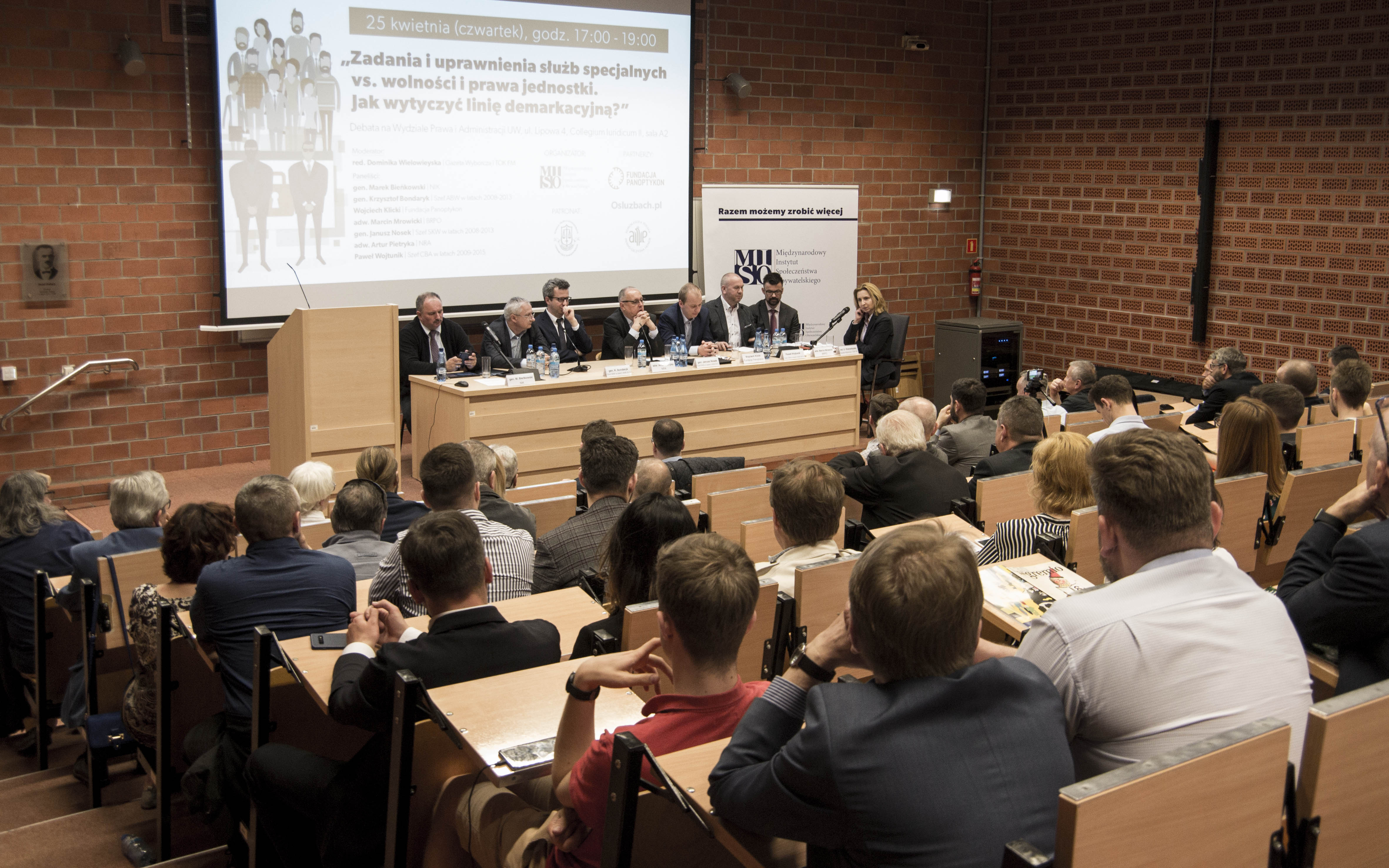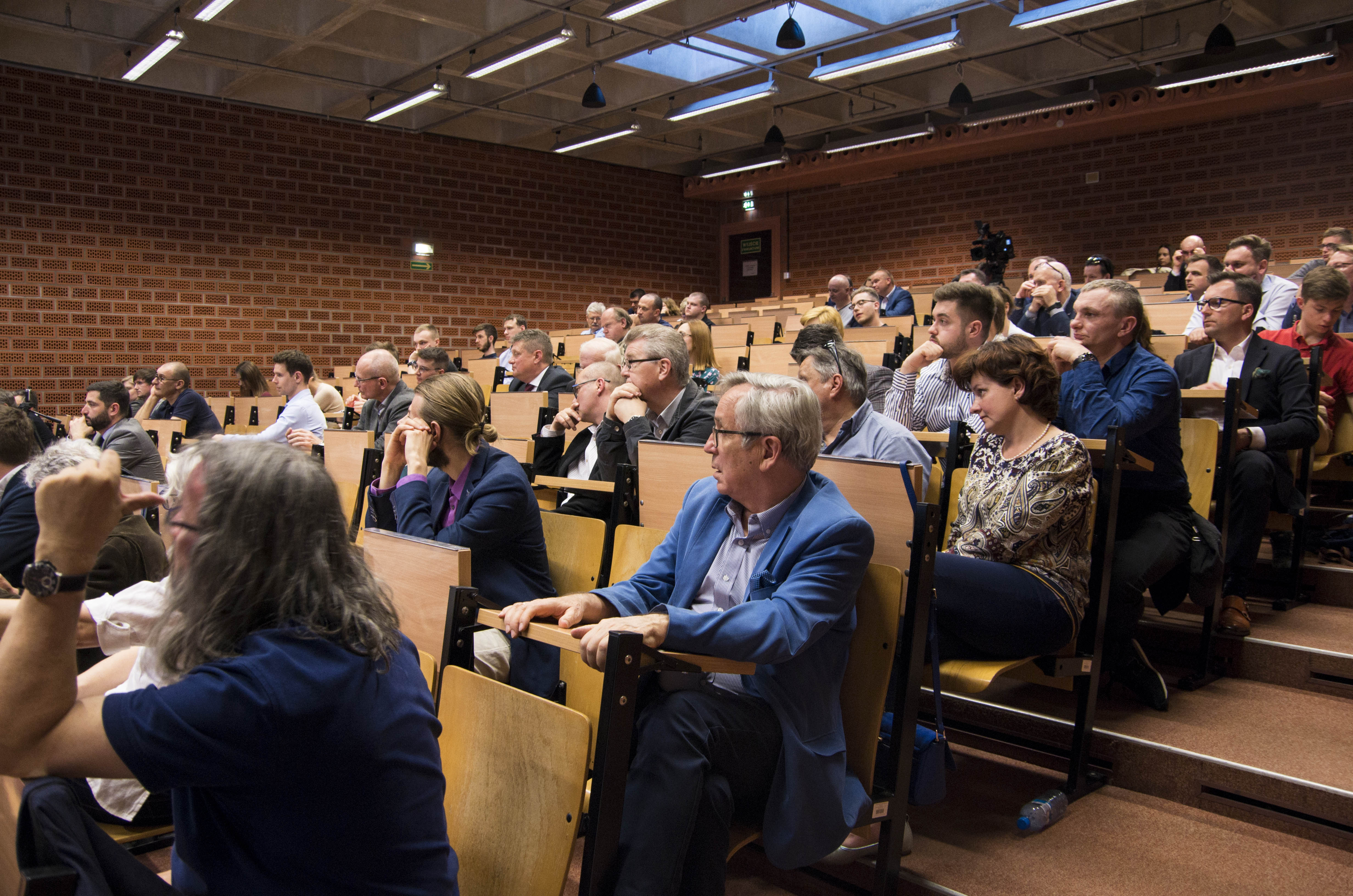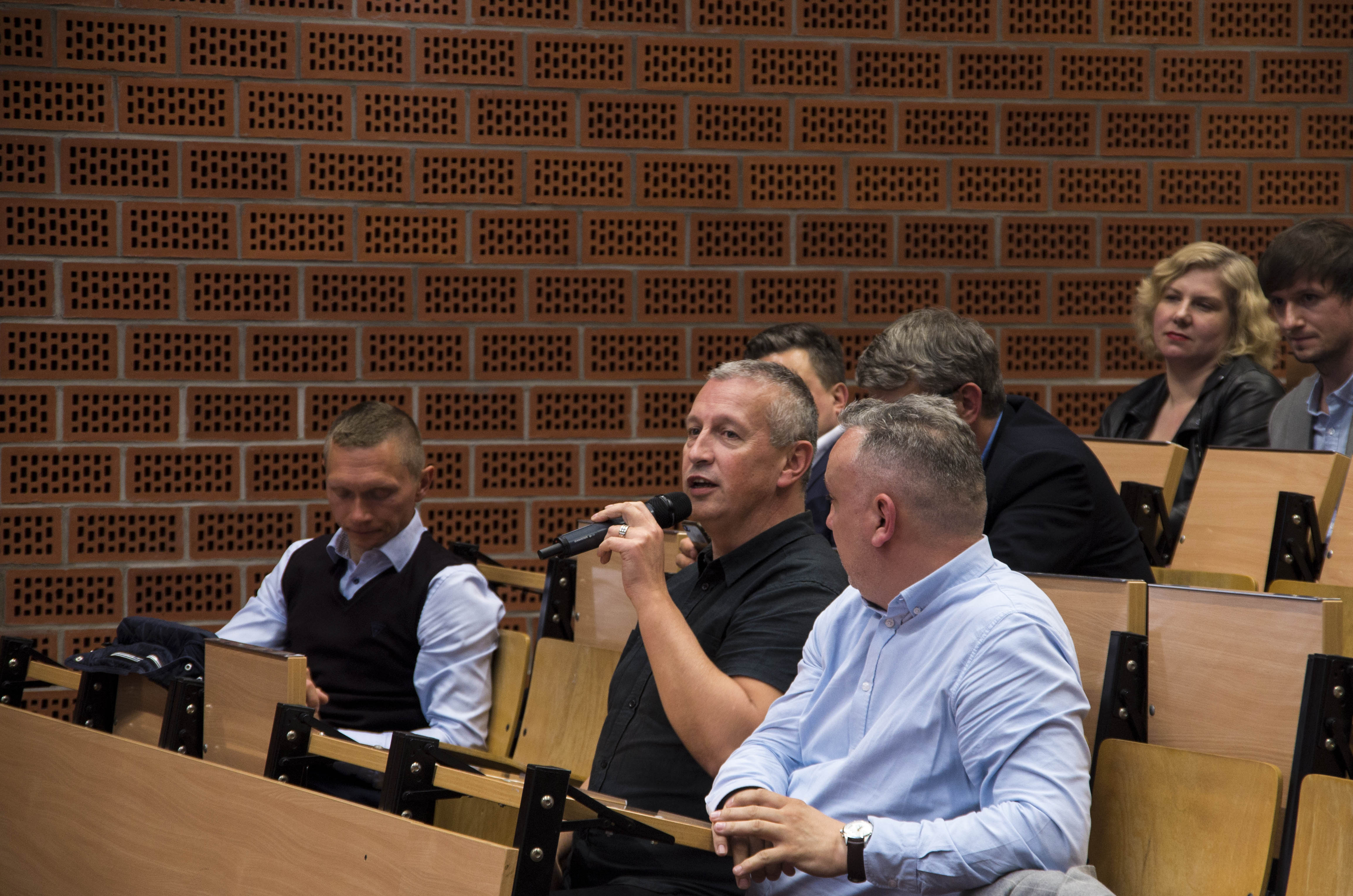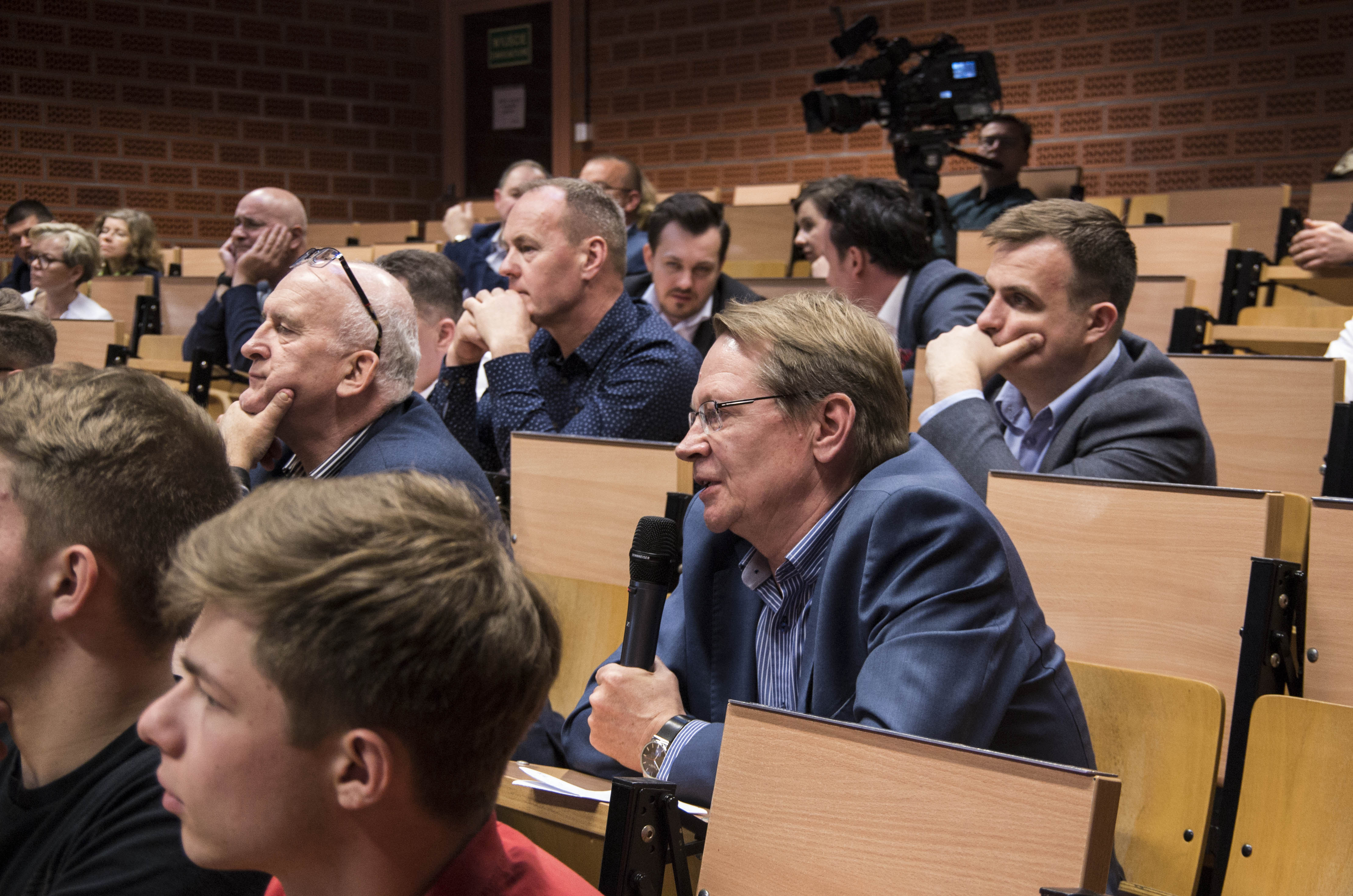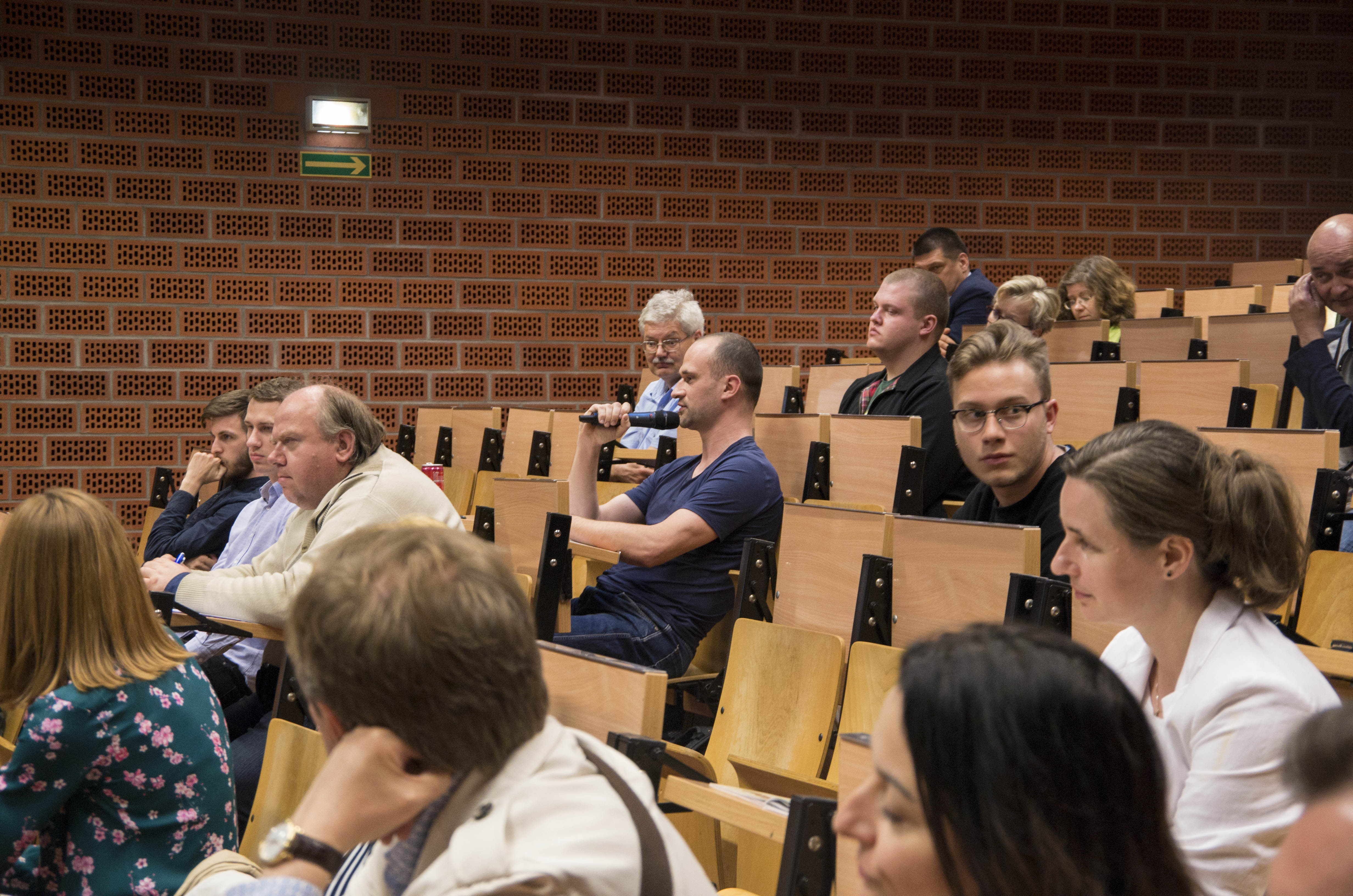The Mandates and Powers of the Special Services vs. The Rights and Freedoms of the Individual. Where to draw the demarcation line?
Taking part as speakers in the meeting were: General Marek Bieńkowski (The Supreme Audit Chamber), General Krzysztof Bondaryk (head of the Interior Security Agency from 2008 to 2013), Wojciech Klicki (Panoptykon Foundation), Attorney Marcin Mrowicki (Office of the Polish Ombudsman), General Janusz Nosek (head of the Military Counterintelligence Service from 2008 to 2013), Attorney Artur Pietryka (The Chief Lawyer’s Council), Paweł Wojtunik (Head of the Central Anticorruption Bureau from 2009 to 2015) and the discussion’s moderator, Editor Dominika Wielowieyska (Gazeta Wyborcza and TOK FM).
Technological progress in global digital communication has revolutionized the way people receive and exchange information, as well as created new possibilities for government agencies to monitor their own citizens and foreigners. In addition, new 5G technologies are speeding up the transmission of information far beyond the possibilities of today’s internet. This is changing the way the world and the special services are functioning.
This prospect places two important challenges in front of us. On the one hand, there exists an expectation that the special services will protect citizens from threats using new, more effective methods. On the other, we count on the fact that they will respect the right and freedoms of every person. How can this balance be achieved? Where does the demarcation line run in the context of the mandates and powers of the special services, and the rights and freedoms of the individual?
The introduction of so called antiterrorist and surveillance laws significantly widened the powers of the special services. Attorney Marcin Mrowicki, representing the Office of the Polish Ombudsman during the debate, stated that a portion of the regulations on the police and special services contained in amendments to the 2015 laws aroused the reservations of the Polish Ombudsman. He submitted 5 motions to the Constitutional Tribunal on the matters from 2015 to 2016. The reservations concerned, among others, the fact that regulations currently in force allow the disclosure only of that information which justifies the carrying out of inspections by the special services. As a result, access to all information doesn’t exist (and especially to that which could point to the groundless execution of such inspections) - hence, a court receives just a segment of material which could convince it that the inspection was necessary. The second reservation concerned the maximum time applied to an operational inspection without initiating criminal proceedings. Presently that period reaches 18 months, which seems to be a disproportionately large period given the techniques that are applied. The third reservation is the lack of the possibility on the part of the citizen to find out about the use of operational controls if not initiated in the aftermath of a criminal proceeding. What’s more, currently the special services have de facto limitless access to our internet, telecommunication and postal data with no genuine supervision. Article 31, paragraph 3 of the Polish Constitution states that interference with the freedom of the citizen must be proportional to the protection of other rights. This is why we must have access to the information on whose basis proceedings were initiated against a specific person - the security of the nation cannot commonly justify such proceedings.
Paweł Wojtunik, the former head of the Central Anticorruption Bureau who is himself presently the subject of special services’ operational activities, regards trust and the human responsibility of those directing them to be decisive for the normal functioning of the services. The most significant threats to citizens rights appears in 3 stages. The first is the commencement of a so called operational case (basically, making someone out to be a target) at which time they become an adversary of the state services. The second stage is the implementation of the most drastic method of operational controls when it comes to citizens rights, such as mail inspections and eavesdropping , etc. In the third stage, the services decide what to do with the collected material. The law very clearly states when such actions are allowed, and what’s more - it expressly says that collected materials cannot be utilized for blackmail. Those materials are either sent to the prosecutor or are destroyed - and there is a 2 month deadline to do so. This could be called the demarcation line. At present, in Wojtunik’s opinion, the management style of the Central Anticorruption Bureau has significantly changed. The largest change lies in the human factor - who directs the services and how they do so, as well as who carries out their supervision. At the moment, we have reason to doubt the intentions of those persons in a directorial position and the way they utilize the services. The fact that, today, material collected under legally carried out operational activities is utilized for a purpose other than criminal prosecution rouses serious fears (with this material forwarded through leaks to friendly journalists). Often these materials concern one’s private life and they are publicized to ascribe them guilt, which violates their right to a presumption of innocence.
In turn, Wojciech Klicki from Panaptykon Foundation feels that institutional audits should be the highest form of trust, and not personal trust in the person directing the services. Informing people about the fact that surveillance activities have been commenced against them is unusually important. Today, no one knows whether they’ve been subjected to the activities of the services, and in connection with this they can’t undertake any activities nor claim their rights in front of a civil court. This is why an independent organ that will monitor the services should be created. In the speaker’s opinion, the third key issue is the transparency of the services’ activities. Now as a result of the surveillance law, all of the services significantly limited their transparency - we don’t even know the statistics as to the number of fees collected by the services in a given year.
General Janusz Nosek is of the opinion that civil freedom is not an absolute good. Sometimes the freedom and privacy of the individual should be sacrificed for the benefit of the nation’s safety. The services act in the interests of the nation, and their competencies and powers are given to them by parliament. General Nosek noted that supervision over them is never perfect, which is why he agreed with Paweł Wojtunik that the human factor (and hence trust in the heads of the services) is most important. - If people that don’t have an elementary sense of the rule of law are at the top of the services then, no matter how precise the monitoring is, they will find ways to cynically take advantage of the sensitive tools at their fingertips. A way to get around monitoring will always be found if such an intention exists - he said. The former head of the Military Counterintelligence Service also added that, in his opinion, the so called antiterrorist law which provided the head of the Interior Security Agency with the ability to act against a foreigner without any internal supervision is a bit far reaching tool. Additionally, the possibility of using the fruit of a poisoned tree - evidence obtained in an illegal way - has given birth to a range of controversies.
Attorney Artur Pietryka of the Chief Lawyer’s Council has had long-standing disputes with the services. According to him, the demarcation line is designated by every independent court. In recent times, court judgements have forged the framework of the services’ activities - he spoke about courts that rule on concrete issues; disciplinary courts, which decide on the responsibilities of prosecutors and judges; administrative courts, where what society is allowed to know about the work of the services is decided. The relation between security and freedom does not rely on the fact that certain freedoms can be sacrificed, but only that those interests should be balanced - and that is a very important difference. On the other hand, the solution to the problem of material being utilized for ends other than the prosecution of a crime can only be effective supervision. - Unfortunately, in the field of the institutionalized monitoring over the services we haven’t done anything, and have even moved backwards - attorney Pietryk states.
General Krzysztof Bondaryk observed that, on top of the special services there are several dozen other state institutions with similar special policing powers. At the same time, not all of the special services have such wide ranging powers as the police. That is why, in terms of the accusation of violations of human rights by the special services, it is worth it to look at the problem from a statistical angle - what types of monitoring the Polish special services are subject to in comparison with other police organizations of similar powers, and how and in what range they apply onerous methods against citizens. The data can be surprising. Furthermore, in the opinion of the former Interior Security Agency head, we don’t realize the broad powers the special services and police of other countries (including those unfriendly to us) posses, and whose activity often takes place within Poland. In relation to their capacity, our possibilities remain meager. The capacity of the Polish services has greatly weakened and, with that, many similiar institutions have been established. General Bondaryk noted that the intention of most officers isn’t a targeted violation of anyone’s rights - the mandates which they receive arise from the law, as well as from the guidelines and expectations of their managers. In the speaker’s opinion, the most appropriate demarcation line would be reliable parliamentary control that covers every special police institution dealing with operational/reconnaissance work and using similiar techniques.
In the opinion of General Marek Bieńkowski of the Supreme Audit Chamber, it is understood that every head of the service accountable for the most basic of tasks must recognize the protection of personal sources of information (as well as of their own officers taking part in classified operations). Hence, an attempt to interfere in those secrets is not warmly welcomed by the heads of the services. The panelist pointed out that the Supreme Audit Chamber’s operational work is excluded from inspection because that is what the structure of the state provides for. Exceptionally, the president of the Supreme Audit Chamber released a statement after a classified audit carried out in 2013 in the context of supervision over the special services. At the time, it was claimed that regulations limit the exercise of effective supervision over the services by the President of the Council of Ministers (as an example, he is deprived of the full knowledge of internal procedures in force within the special services). According to the Supreme Audit Chamber, an independent state organ that would report information regarding the activities of the services after proceedings are complete is necessary - while maintaining the protection of sources and officers. Contrary to appearances, the result of such an audit could be fairly positive and almost beneficial to the perception of the services’ functioning. Unfortunately, we are heading in a completely different direction. Rather, the services are not so willing to cooperate. General Marek Bieńkowski also joined the group of speakers whose opinion it is that the security of the nation and the observance of basic human rights can’t depend on the values of individual heads of the services (who at any given moment perform this function). Therefore, only effective monitoring tools - and not human factors - are the most important. In the end, he expressed satisfaction at the undertaking of an open debate with the participation of practitioners and experts on the subject of the services. Engaging in a social dialogue will be key for the special services to gain public trust.
This debate’s partners were: Panoptykon Foundation, The Chief Lawyer’s Council, and the website osluzbach.pl. At the same time, the event was put on under the patronage of the Department of Law and Administration at Warsaw University.


